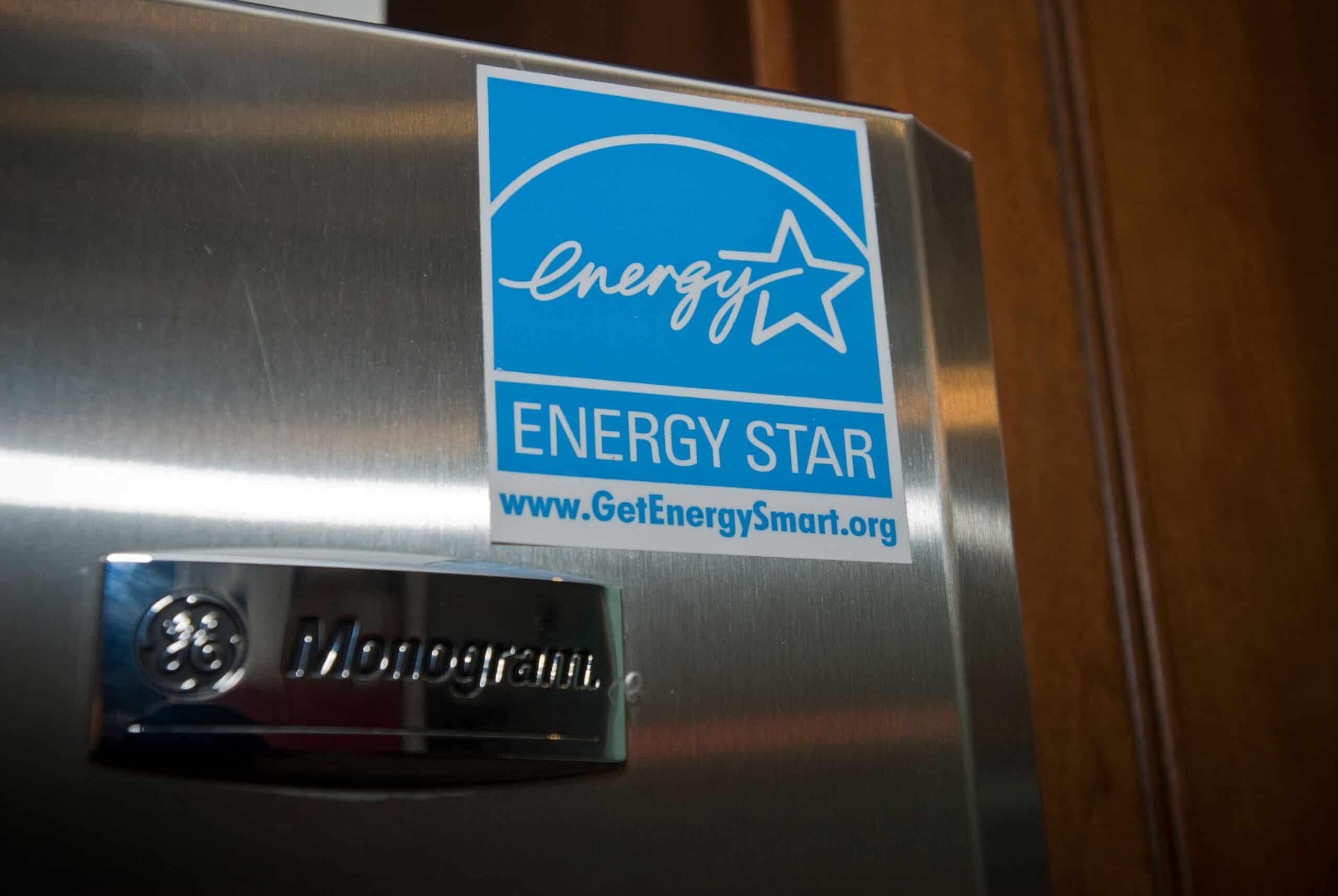
When you’re shopping for home appliances, taking various labels and certifications into account in your purchase decision process can be overwhelming. However, one label stands out for its significance in energy efficiency: the ENERGY STAR label. Here’s what you need to know about the ENERGY STAR label, why it matters, and how to weigh the information they share. It’s your first and best step toward choosing a budget-conscious and environmentally friendly new appliance.
What Does the ENERGY STAR Label Mean?
The ENERGY STAR label (not to be confused with an EnergyGuide label), is a widely recognized symbol for energy efficiency that represents an optimal level of quality and performance. Developed by the U.S. Environmental Protection Agency and the U.S. Department of Energy, this label signifies that the product meets strict energy efficiency guidelines set by these agencies. Appliances with this label are designed to use less energy, reduce utility bills, and minimize your home’s negative impact on the environment.
Why Purchasing Appliances with ENERGY STAR Labels Is Important—And Worth Your While
Choosing ENERGY STAR-certified appliances is crucial for several reasons. First, these appliances consume less energy, which translates to cost savings through reduced energy bills. Additionally, by using less energy, these appliances contribute to the reduction of greenhouse gas emissions, playing a part in combating climate change. Their energy efficiency does not compromise performance—you’re still getting a product that is as performance effective as it is environmentally friendly.
How to Read an ENERGY STAR Label
Understanding the ENERGY STAR label is key to making an informed purchase. An ENERGY STAR label on an appliance indicates that it has been rigorously tested and certified to meet the energy efficiency standards mentioned earlier.
To fully utilize the information on these labels, consider the following components:
- Energy consumption. ENERGY STAR appliances often display their energy use in kilowatt-hours (kWh) per year, allowing you to estimate how much electricity the appliance will use annually.
- Comparative energy consumption. Some labels may also show how the appliance’s energy consumption compares to similar models. This comparison can guide you toward choosing the most energy efficient option.
- Features and size. Remember that the number of features and size of an appliance impact its energy consumption, but that doesn’t mean you have to compromise on either. An ENERGY STAR-certified appliance with more features or larger size may consume more energy than a simpler or smaller model, but it will still be more efficient than comparable noncertified products.
Save More Energy with Michigan Saves
Michigan Saves can help keep your energy bills down—now and all year long. Our home and business financing help you quickly turn your home or business into a comfortable and energy efficient space through low-interest financing for eligible energy upgrades.
If saving money and energy is your goal, you’re in good hands. Get professional help from one of our authorized Michigan contractors in your area. Start saving with us today!




